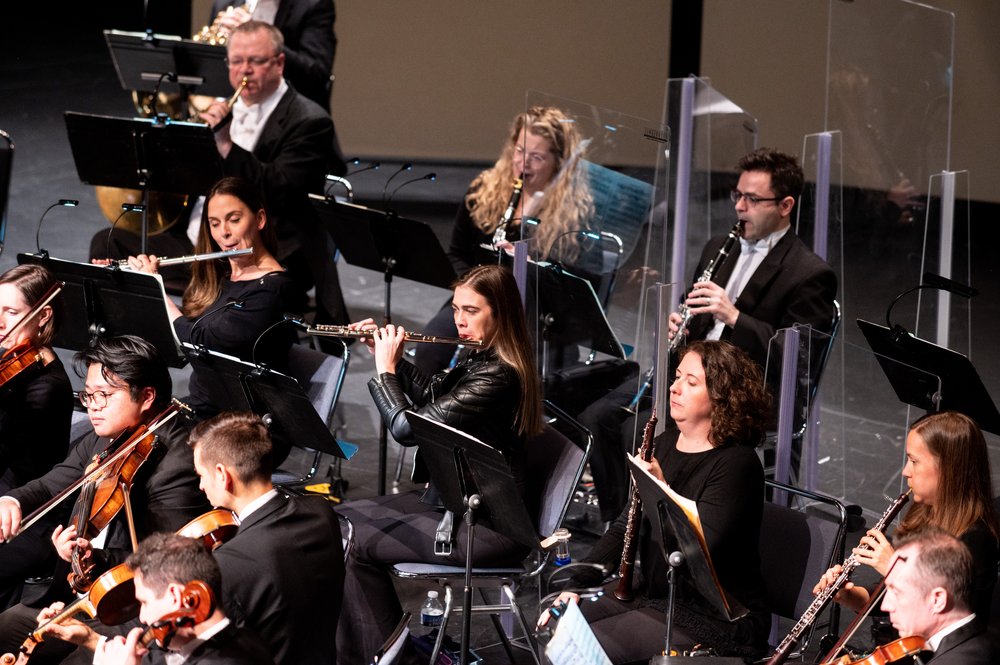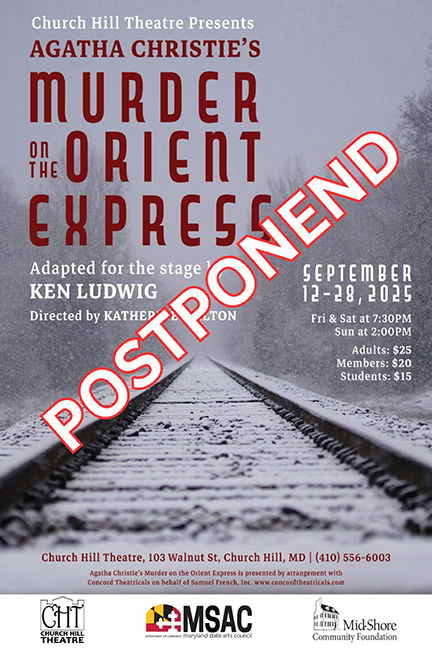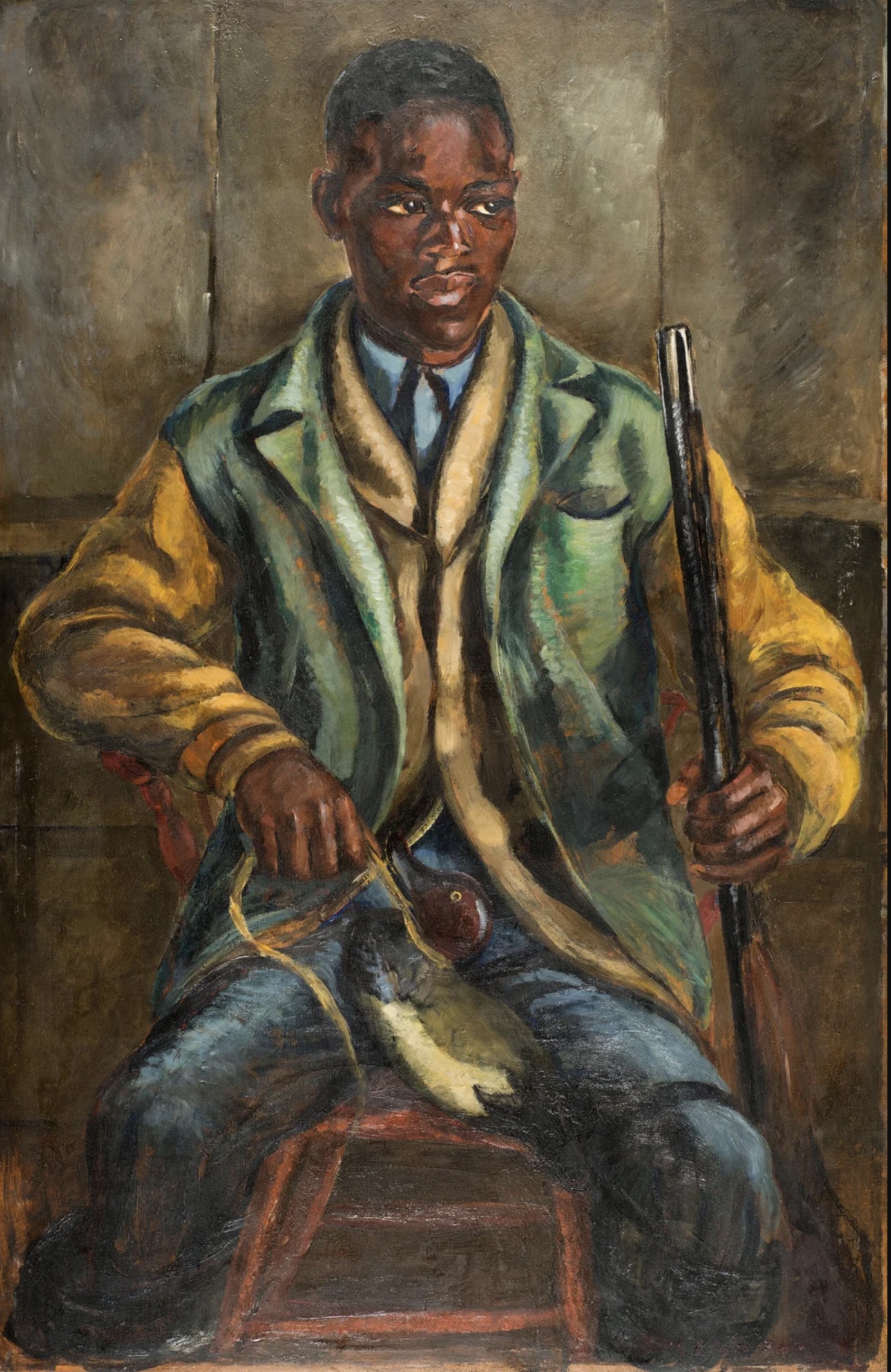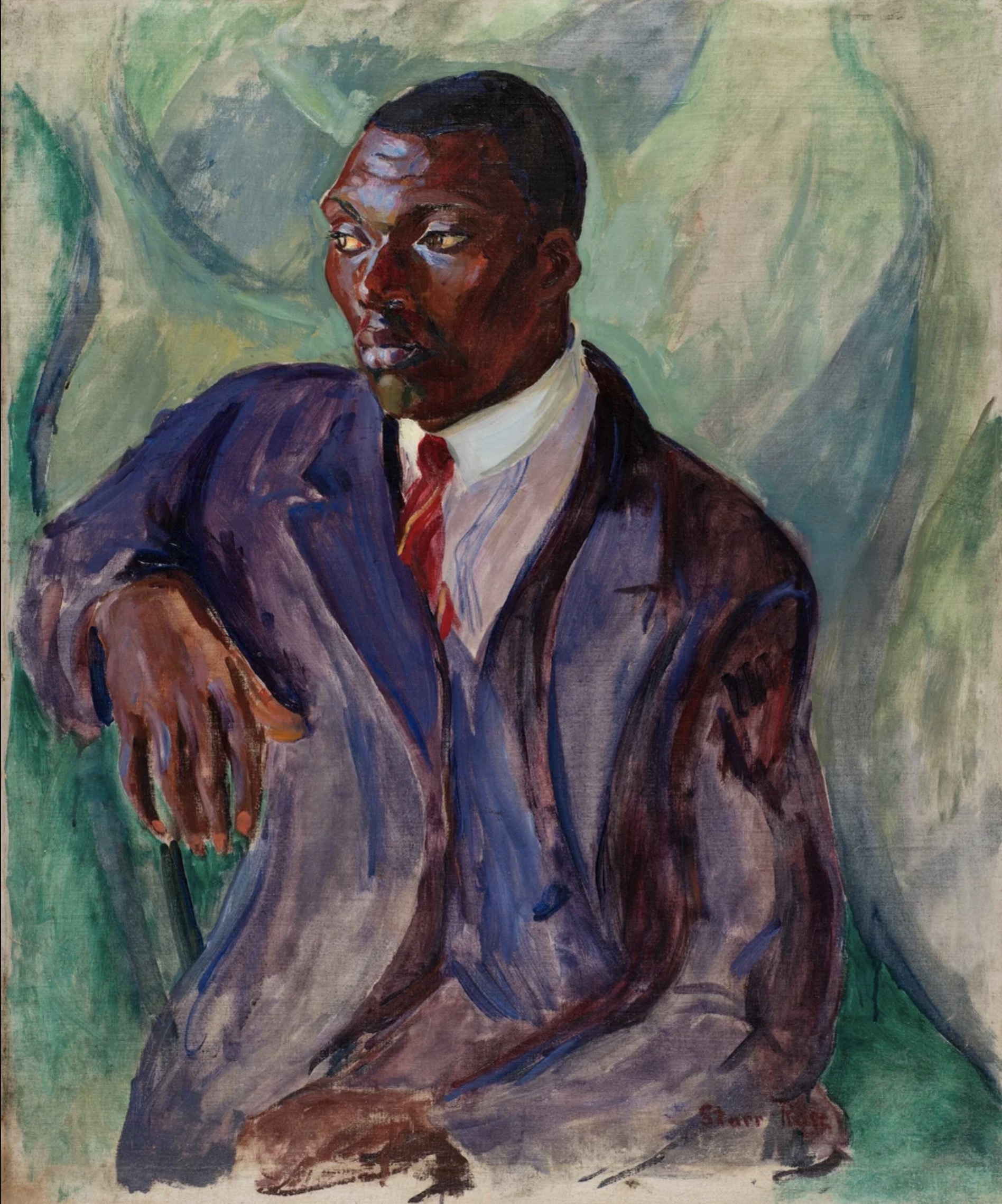
The Mid-Atlantic Symphony Orchestra bills its 28th season, 2025-26, as one of “Bold Voices, Eternal Resonance.” It’s hard to beat Beethoven for eternal resonance. And as for bold voices, Bartok certainly comes to mind. But for a surprise entry opening night Thursday at the Easton Church of God, music director Michael Repper turned to a 19th-century composer whose music is largely new to 21st-century listeners.
Emilie Mayer (1812-1883) was one of the first European women to make her mark as a composer of orchestral music. But her Symphony No. 1, performed by the MSO, and her entire classical canon – including seven other symphonies along with piano sonatas and chamber works – was all but forgotten after her death. Never mind that she was hailed as the “Female Beethoven” and in popular demand for her Romantic repertoire, especially in her native Germany.
The evening opened with Bela Bartok’s Romanian Folk Dances he created as a way to overcome post-World War I depression. Inspired by tunes he heard during trips to Transylvania, the piece runs seven minutes or so, played orchestrally. In such a short span – one of the bits is 30 seconds start to finish – the tunes fly by almost indiscernibly one from another. Better to consider them a single folk instrumental ranging in tempo and temperament from fast to slow, gleeful to wistful. While strings set the tempo, reeds rule the temperament – especially flutes (led by Mindy Heinsohn) – which moved Bartok to get over his funk.
The Bartok appetizer whets our palate for a main course. And Emilie Mayer does not disappoint. For a first symphony, each of the four movements are mature, diverse in style and way ahead of her time, having debuted in Berlin in 1847. The opening adagio/allegro energico morphs from contemplative to bombastic. Energetic for sure. The slower second movement gives us and the players time to catch our breath before it grows in emotional intensity. A satisfyingly lively and rhythmic scherzo leads to a finale testing every part of the orchestra to peak at the climatic close of what for me and most of the audience was a triumphant debut, sadly, for a long dead and neglected composer. My suggestion going forward is to bring Mayer back to musical life with one of her later pieces: Repper mentioned her “Faust Overture” – if not for this season, perhaps next.
After intermission, the “male” Beethoven, one of Mayer’s early classical music heroes, proved his “eternal resonance” in a spirited performance of his Symphony No. 7, which the master himself called one of his greatest works.
The odd-numbered genius can hardly be surpassed in Symphonies 5, 7 and 9, compared to which even the estimable No. 4 is a dud. And for my money (which I am not betting on) his Symphonies 7 and 9 outrank even the fabled 5th. There is not a moment in the 7th that permits your attention to wander for one note. It must be a thrill for someone who can play for a living to perform with a full and entirely capable orchestra of fellow musicians by a conductor who knows how to lead.
So the particulars: The distinctively familiar opening, with a single note repeated thrice, establishes the movement’s prevailing theme, picking up the pace feverishly to a dramatic finish that would bring a less informed audience to its feet in bravo appreciation. The second movement allegretto settles into an almost lullaby cadence before bursting into a declarative resolution offset by the playful exuberance of the presto scherzo to follow.
The allegro con brio finale begins as if it’s at the fantastic finish line, though it’s way too soon to go home. Bow-to-string lightning bolts and thunderous drumbeats are about to strike, led by concertmaster Kimberly McCollum and associate Paula Sweterlitsch, along with violist Yuri Tomenko, cellist Katie McCarthy, bassist Chris Chlumsky , and timpanist Barry Dove.
Coming up in early November is “Echoes of Greatness” with guest conductor George Jackson leading the MSO in a program of Mozart and Mendelssohn symphonies and a Beethoven overture.
MID-ATLANTIC SYMPHONY SEASON OPENER
Easton Church of God, Thursday night. Upcoming performances of the same program, 3 p.m. Saturday, Sept. 27, Epworth United Methodist Church, Rehoboth Beach; 3 p.m. Sunday, Sept. 28, Ocean Pines, Md. midatlanticsymphony.org
Steve Parks is a retired New York arts critic now living in Easton.





